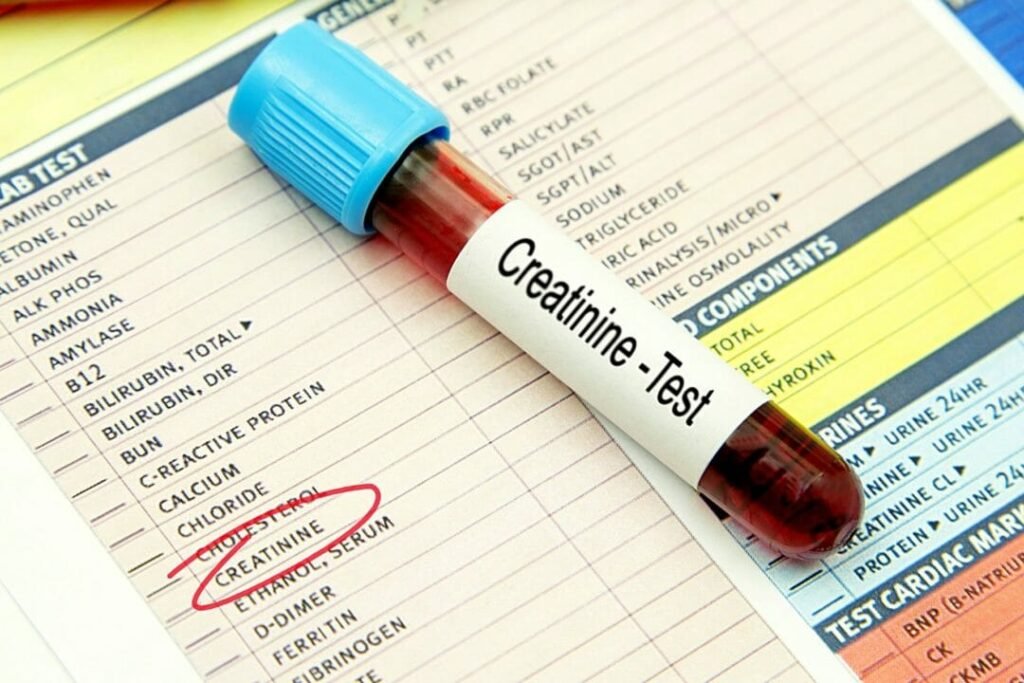
Serum creatinine is a common term you may encounter during routine blood tests, particularly when assessing kidney function. It serves as an important marker to understand how well your kidneys are working. In this blog, we will dive deep into what serum creatinine is, why it matters, and how it can be used to monitor your overall health.
What is Creatinine?
Creatinine is a waste product formed from the normal wear and tear on muscles. Specifically, it is a byproduct of the metabolism of creatine, a molecule crucial for energy production in muscles. While creatinine is naturally produced by the body, it needs to be eliminated effectively to prevent it from accumulating to harmful levels.
What is Serum Creatinine?
Serum creatinine refers to the level of creatinine found in your blood. It is measured during routine blood tests to evaluate kidney function. Since the kidneys filter creatinine from the blood and eliminate it in urine, serum creatinine levels can help indicate how well the kidneys are performing their filtration duties.
Normal Range of Serum Creatinine
Serum creatinine levels can vary based on several factors like age, gender, and muscle mass. However, the general reference range for adults is:
- Men: 0.74 to 1.35 milligrams per deciliter (mg/dL)
- Women: 0.59 to 1.04 mg/dL
These values may differ slightly depending on the lab, but significant deviations could signal an underlying health issue.
Why is Serum Creatinine Important?
- Indicator of Kidney Function: Serum creatinine is considered a reliable indicator of kidney function. Healthy kidneys efficiently filter out creatinine from the blood. If your kidneys are not functioning well, creatinine levels in the blood rise because the kidneys are no longer able to eliminate it properly.
- Monitoring Chronic Kidney Disease (CKD): Elevated serum creatinine levels are often a sign of chronic kidney disease (CKD). Regular monitoring of serum creatinine helps track the progression of CKD and allows doctors to intervene early, potentially slowing disease progression.
- Assessing Acute Kidney Injury: Acute kidney injury (AKI) can occur suddenly due to trauma, infection, or other medical conditions. In these cases, serum creatinine levels can rise rapidly. Monitoring these levels helps determine the severity of the injury and guides treatment plans.
- Adjusting Medication Dosage: Some medications are filtered through the kidneys. Patients with elevated serum creatinine levels may need dosage adjustments to prevent drug accumulation, which could lead to toxicity.

How is Serum Creatinine Measured?
Serum creatinine is typically measured through a blood test. The procedure is simple and involves drawing a small sample of blood from a vein, which is then analyzed in a laboratory to determine creatinine levels.
For a more comprehensive evaluation of kidney function, doctors often calculate the glomerular filtration rate (GFR). GFR is an estimate of how much blood is passing through the kidneys’ filtering units, called glomeruli, each minute. GFR is calculated using the serum creatinine level along with factors such as age, gender, and body size. A low GFR indicates impaired kidney function.
Factors Affecting Serum Creatinine Levels
- Age and Gender: Serum creatinine levels naturally differ between men and women, with men typically having higher levels due to greater muscle mass. Older adults may have lower levels because muscle mass decreases with age.
- Diet: High-protein diets can temporarily increase serum creatinine levels. Individuals who consume large amounts of red meat or protein supplements may have higher levels due to increased creatinine production.
- Medications: Certain medications, such as ACE inhibitors, NSAIDs, or antibiotics like trimethoprim, can affect serum creatinine levels. It’s essential to inform your healthcare provider about any medications you are taking before testing.
- Dehydration: Dehydration can falsely elevate serum creatinine levels by reducing blood flow to the kidneys, leading to less efficient filtration.
High Serum Creatinine: What Does It Mean?
When serum creatinine levels exceed the normal range, it is usually a sign that the kidneys are not filtering waste products effectively. Some common causes of high serum creatinine include:
- Chronic Kidney Disease (CKD): A long-term condition where the kidneys gradually lose their function.
- Acute Kidney Injury (AKI): A sudden, severe decline in kidney function due to factors such as dehydration, infections, or trauma.
- Kidney Infections: Conditions such as pyelonephritis (kidney infection) can impair kidney function and lead to elevated creatinine levels.
- Obstruction in the Urinary Tract: Kidney stones, tumors, or other blockages can reduce the kidneys’ ability to eliminate creatinine.
Symptoms of High Serum Creatinine
Although high creatinine itself does not cause symptoms, elevated levels are often associated with underlying kidney dysfunction. Symptoms may include:
- Fatigue or weakness
- Swelling in the legs or face (edema)
- Decreased urine output
- Shortness of breath
- Confusion or difficulty concentrating
Low Serum Creatinine: Should You Be Concerned?
While high serum creatinine is more commonly discussed, low levels can also indicate certain health conditions, such as:
- Muscle Wasting: Individuals with low muscle mass, particularly the elderly or malnourished, may have lower creatinine levels.
- Liver Disease: Impaired liver function can reduce creatinine production.
- Pregnancy: Pregnant women may experience reduced serum creatinine levels due to increased kidney filtration.
How to Maintain Healthy Serum Creatinine Levels
- Stay Hydrated: Drinking enough water helps maintain proper kidney function and prevent dehydration, which can falsely elevate serum creatinine levels.
- Eat a Balanced Diet: Focus on a diet rich in fruits, vegetables, and whole grains. Reducing excessive protein intake, especially from animal sources, can help manage creatinine levels.
- Exercise Regularly: Moderate physical activity supports muscle health, but avoid excessive muscle breakdown from overexercising, which could increase creatinine production.
- Manage Underlying Health Conditions: If you have diabetes, hypertension, or other conditions that could impact kidney health, work with your healthcare provider to keep these conditions under control.
When to See a Doctor
If your serum creatinine levels are higher or lower than normal, it’s essential to consult with a healthcare provider. They may recommend further testing or develop a treatment plan based on the underlying cause. Early detection of kidney issues can lead to more effective treatments and better long-term health outcomes.
Conclusion
Serum creatinine is a critical marker in evaluating kidney health. By understanding its role and monitoring your levels regularly, you can take proactive steps to maintain your overall well-being. Whether you are managing a chronic condition or simply monitoring your health, keeping your kidneys functioning properly is key to a healthy life.
For any concerns about your kidney health or serum creatinine levels, always seek guidance from a healthcare professional to ensure you’re on the right path toward better health.








